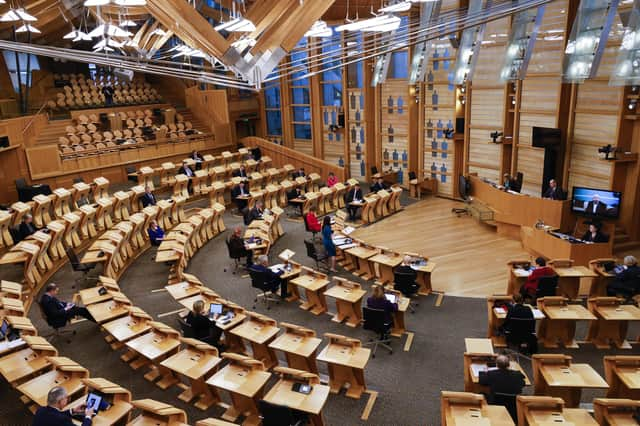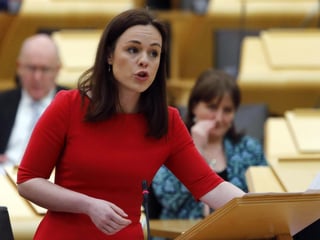Why the Scottish budget was always a tough ask - John McLaren


We are still stuck in the midst of a pandemic, the UK Government is due to have another Budget in just over a month and a Scottish election is in the offing.
What to assume, who to reward? Difficult questions.
The response was, unsurprisingly, a holding exercise. However, within that there were some tantalising glimpses into the future.


Advertisement
Hide AdAdvertisement
Hide AdAre we to return to an era of council tax freezes? This would be unpopular with most councils as they would like to see rises above the 3 per cent implicit level set yesterday, but no doubt popular with the public.
What are the wider prospects for future local government funding? They don't look great.
Together, health, local government and (Scottish) social security make up almost three-quarters of the resource (i.e. day-to-day spending) budget.
Health and social security – via wellbeing and inequalities commitments – are top priorities for the Scottish Government, local Government less so.
It’s not difficult to see how increasing pressures in the NHS and on demand-led benefits could result in a relative spending squeeze on councils.
Some of these quandaries were examined in the Government’s accompanying Medium-Term Financial Strategy (MTFS) document, but not very convincingly.
How much can key workers expect to be compensated in the future? Again the MTFS highlights the difficulties, with a 3 per cent pay award over the next five years costing £1.6 billion more than a 1 per cent pay award.
And for some, even 3 per cent may seem on the stingy side.
Of course all of this is highly conjectural at present, as the ongoing pandemic makes the economic future, and also the funding needs of most public services, highly uncertain.
Advertisement
Hide AdAdvertisement
Hide AdAs a result, each Scottish and UK budget is simply a point-in-time guess of what will be needed.
The current figures will inevitably be augmented by a mixture of future UK and Scottish Government Budget updates and potentially by internal Scottish Parliament agreements, especially post the 2021 Scottish election.
Furthermore, key questions remain highly relevant, but far from resolved.
For example:
- When, and by how much, should current Covid-related support for workers, businesses and public services be reduced in the future?
- How much spare capacity should be built into the NHS and into education in case of ongoing, or future, pandemic (and other) problems - i.e. how far do we move from efficiency based to resilience based budgeting?
- What taxes will need to rise, and by how much, to accommodate any increase in underlying funding post the pandemic?
At present, budget exercises are simply limping from one point in the crisis to the next, without addressing these fundamental questions.
It will be interesting to see what finally emerges in terms of ‘a changed world’ and also how closely the politicians view of this changed world chimes with that of the public.
- John McLaren is a political economist who runs the scottishtrends.co.uk website.
Comments
Want to join the conversation? Please or to comment on this article.
